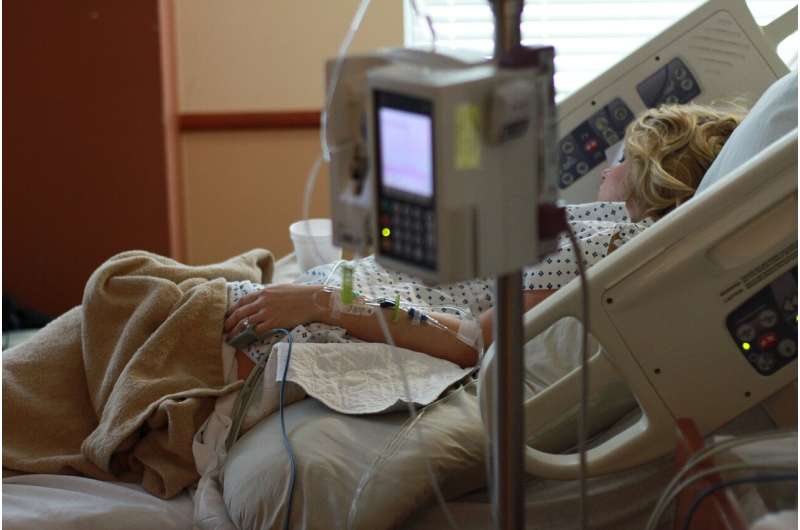Palliative care study finds patients and caregivers feel obliged to give and receive support


Researchers at Trinity’s School of Medicine have investigated how patient and informal caregiver reciprocal support in specialist palliative care impacts on patient and caregiver decision making for care. Their findings indicate that both obligation to each other and feeling constrained by one another can limit patient and caregiver open disclosure in decision making. The study is published in the Journal of Pain and Symptom Management.
The team’s previous research informed them that patient and caregiver can reciprocate in supporting one another. This current research now gives fresh insight into the area of decision-making in palliative care that had not previously been understood, and ties in with national palliative care week: September 10th to 16th 2023.
Palliative care is an interdisciplinary care approach focused on alleviating symptom distress for people living with life-limiting progressive conditions, and their families. Patients with advanced illness not only depend on health care professional support; they also rely heavily on family to take on caregiving roles. Family caregivers are often involved in the decision-making process for treatment and care.
Understanding how supportive behaviors between patients and informal (usually family) caregivers impacts on treatment decision-making is necessary to facilitate effective communication between patients and their caregivers, and in turn, optimize care outcomes for both the patient and caregiver.
Researchers now believe the impact of mutual obligation on patient and caregiver decision-making needs to be considered when designing interventions for patient care in palliative care settings.
The study involved in-depth qualitative interviews on the topic with patients with advanced illness and their caregivers. All participants were recruited from a large regional specialist palliative care service in Ireland.
Key findings
- Although the patient and caregiver in palliative care can be mutually supportive, how they support one another can have negative connotations for both the patient and caregiver when faced with decisions about care.
- Mutual support between the patient and caregiver was underpinned by mutual obligation.
- For caregivers, obligation to the patient was explained by having little choice but to assume a caregiving role and feeling constrained in a caregiving role.
- For patients, obligation to their caregiver centered on feeling obliged to accept assistance from their caregiver and feeling constrained in a care recipient role.
- Caregivers who felt obliged to care reported difficulty in discussing the patient’s preferences for care with the patient as well as their own wishes for patient care.
- Some caregivers struggled to engage in conversations with the patient about treatment options.
- Caregivers who felt most obliged to care reported the most distress in their role, feeling burdened and under strain.
- Caregivers who felt supported by the patient, by their own choice and obligation, were more likely to be invited into the decision-making process for care.
- Where the caregiver did not feel forced into caregiving and the patient did not feel inhibited by their reliance on the caregiver, open communication about the needs and preferences for care were far more likely.
Dr. Geraldine Foley, assistant professor in occupational therapy at Trinity, primary investigator and corresponding author of the study, said,
“The findings from our study pinpoint key dimensions to the patient and caregiver relationship for decision-making in palliative care that we had not fully appreciated prior to conducting the study. We found that caregivers who felt obliged to care had difficulty communicating with the patient about the patient’s preferences, and that patients who felt obliged to accept assistance tended to minimize caregiver involvement in decision making.”
“However, caregivers who assumed caregiving on their own accord and patients who did not feel constrained in care recipient role, were much more open in their communication with each another and trusting of one another.”
In considering the potential clinical impact of their findings, Dr. Foley said, “These findings highlight the importance for health care professionals to help the caregiver cope with loss of control and choice in a caregiving role. This includes increasing the level of support available to caregivers but also helping caregivers process and deal with loss of control and choice in a caregiver role.
“Supporting the patient should involve as appropriate open communication between the patient and caregiver because open communication between the patient and caregiver appears to have a positive outcome for the patient as well as the caregiver.”
More information:
Rachel McCauley et al, Patient and Caregiver Reciprocal Support: Impact on Decision Making in Specialist Palliative Care, Journal of Pain and Symptom Management (2023). DOI: 10.1016/j.jpainsymman.2023.08.002
Journal information:
Journal of Pain and Symptom Management
Source: Read Full Article